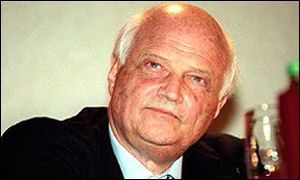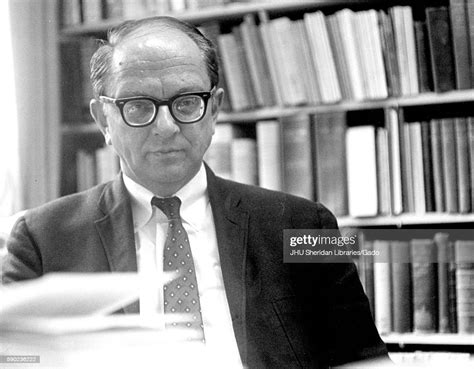A Quote by Robert Louis Stevenson
I had learned to dwell with pleasure as a beloved daydream on the thought of the separation of these elements. If each I told myself could be housed in separate identities life would be relieved of all that was unbearable the unjust might go his way delivered from the aspirations and remorse of his more upright twin and the just could walk steadfastly and securely on his upward path doing the good things in which he found his pleasure and no longer exposed to disgrace and penitence by the hands of this extraneous evil.
Quote Topics
Aspirations
Beloved
Could
Daydream
Delivered
Disgrace
Doing
Dwell
Each
Elements
Evil
Exposed
Found
Go
Good
Good Thing
Good Things
Had
Hands
His
His Ex
His Way
Identities
Just
Learned
Life
Longer
Might
More
Myself
Path
Penitence
Pleasure
Relieved
Remorse
Separate
Separation
Things
Thought
Twin
Unbearable
Unjust
Upright
Upward
Walk
Way
Which
Would
Would Be
Related Quotes
He and his wife loved each other and brought each other daily pain. Everything else he was doing in his life, even his longing for Lalitha, amounted to little more than flight from circumstance. He and Patty couldn't live together and couldn't imagine living apart. Each time he thought they'd reached the unbearable breaking point, it turned out that there was still further they could go without breaking.
None has more frequent conversations with a disagreeable self than the man of pleasure; his enthusiasms are but few and transient; his appetites, like angry creditors, are continually making fruitless demands for what he is unable to pay; and the greater his former pleasures, the more strong his regret, the more impatient his expectations. A life of pleasure is, therefore, the most unpleasing life.
I don't think I would have been a good architect. Really, I have thought about this from time to time, and I might have wound up like my father, who never did find that which he could devote his life to. He sort of drifted from job to job. He was a traveling salesman, he was a bookkeeper, he was an office manager, he was here, there, there. And however enthusiastic he was at the beginning, his job would bore him. If I hadn't had the writing, I think I might have replicated what he was doing, which would not have been good.
The evil of the actual disparity in their ages (and Mr. Woodhouse had not married early) was much increased by his constitution and habits; for having been a valetudinarian all his life, without activity of mind or body, he was a much older man in ways than in years; and though everywhere beloved for the friendliness of his heart and his amiable temper, his talents could not have recommended him at any time.
Man is more than his environment. It is from the innate quality of the Spirit in him, his inner storehouse, that he draws those ideas, his intuitions, which unify his perceptions of the external world instantaneously with a value which is qualitative and not quantitative, and which he embodies in the works of his culture - those achievements which belong not only to one particular time but to all times, and mark the path of his upward progress.
Here, take this, she would say, take this, and tell me where he is. Tell me whether he's dead or alive, so I can walk as his widow or his wife. No one would, or could, tell her, and so she continued to cook, and to learn new things all the while searching for an answer among the outcasts. The way he carried his body, the way he walked in my life, Tatiana thought, declared that he was the only man I had ever loved, and he knew it. And until I was alone without him, I thought it was all worth it.
If man were relieved of all superstition, and all prejudice, and had replaced these with a keen sensitivity to his real environment, and moreover had achieved a level of communication so simplified that one syllable could express his every thought, then he would have achieved the level of intelligence already achieved by his dog.
I had utterly abandoned myself to Him. Could any choice be as wonderful as His will? Could any place be safer than the center of His will? Did not He assure me by His very presence that His thoughts toward us are good, and not evil? Death to my own plans and desires was almost deliriously delightful. Everything was laid at His nail-scarred feet, life or death, health or illness, appreciation by others or misunderstanding, success or failure as measured by human standards. Only He himself mattered.
I would say that I learned that the heartbreak wasn't as much about me as the fact that my partner wasn't right with himself. I see where his life has taken him, and realize that the handwriting was on the wall. There were things that I had blamed myself for, but it was really more about his choices, his needs and his journey as a person. His desire for too much of everything made it a challenging relationship.
Frank W. Woolworth once told me that the turning-point in his career did not come until he was thrown flat on his back by illness. He was sure that his business would go to pieces during his long, enforced absence. Instead, he discovered that he had in his employ men who could overcome difficulties when given power to exercise initiative. After that Woolworth left many problems and difficulties to be solved by subordinates and turned his attention to big things.
When a man sought knowledge, it would not be long before it could be seen in his humbleness, his sight, upon his tongue and his hands, in his prayer, in his speech and in his disinterest (zuhd) in worldly allurements. And a man would acquire a portion of knowledge and put it into practice, and it would be better for him than the world and all it contains - if he owned it he would give it in exchange for the hereafter.





































